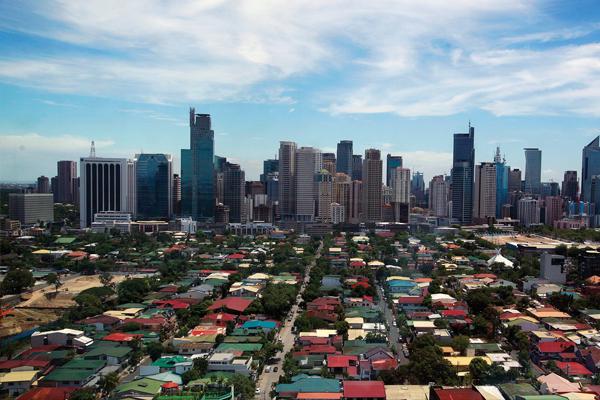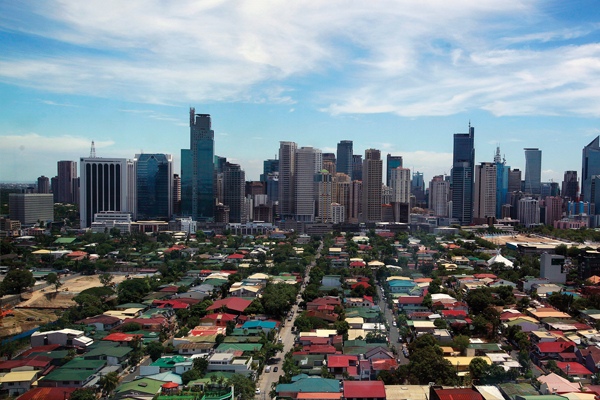
To get an idea of how much Chinese investment in the Philippines has rocketed of late, simply look at the numbers. In 2015, as ties between the two countries deteriorated over issues relating to the South China Sea, PRC investment in the Philippines was a mere $32 million, a drop in the overall bucket of $130 billion that China doled out globally. In October last year, newly elected Philippine President Rodrigo Duterte traveled to Beijing with a high-level business delegation in one of the more talked-about state visits by a Filipino leader in recent times. The outcome? Investment and financing agreements between that totaled $24 billion, of which $15 billion are investment projects and $9 billion credit facilities.
Philippine Trade Secretary Ramon Lopez was quoted in local media as saying that the deals spanned across industries such as manufacturing, agribusiness, trade, finance, hotels, telecommunications, tourism, transportation and infrastructure. In total, the investment agreements would translate to at least two million jobs generated locally over the next five years. These served to bring together two countries that had been growing closer economically over the years – at present, China is the Philippines’ second major trading partner with $17 billion value in total trade. While Philippines exports to China were $6 billion in 2015, there was still room to grow, as China’s total imports totaled around $2 trillion that year.
Among the deals signed by Duterte, the overwhelming preference was that for infrastructure. “Infrastructure gets a fairly large share,” says Aris Gulapa, managing partner of the Manila-based Gulapa Law Office (G-Law). “Preliminary agreements in railways, ports, and energy worth $11.2 billion have been reported to be signed between Philippine and Chinese firms.” These included a preliminary agreement by China’s Baiyin Nonferrous Group to consider investing up to $700 million in a stainless steel plant in the Philippines owned by Global Ferronickel Holdings, a memorandum of understanding for a $2.5 billion project signed by China Railway Engineering Corp. and MVP Global Infrastructure Group, and China Harbour Engineering’s investment in a $780 million coastline and port project in Davao City, Duterte’s hometown.
Back to topINTEREST, BUT CHALLENGES
According to Gulapa, his firm has seen an uptick in inquiries from Chinese and China-based clients, specifically in trading and infrastructure. “In the infrastructure sector, Chinese investment is increasing in power, particularly renewable energy,” he notes. “We are currently assisting a leading Chinese contractor in a transaction involving solar power. At the same time, we are assisting several Chinese companies in setting up presence in the Philippines to distribute their products and services to the Philippine market.”
That said, the path of Chinese investors will not be entirely smooth. “Challenges involve foreign ownership caps and minimum paid-up capitalisation requirements,” says Gulapa. “Philippine law, particularly the Foreign Investments Negative List, includes several sectors that are subject to these limitations. In fact, depending on the activity involved, both infrastructure and trading are subject to these limitations.”
Gulapa says that in infrastructure, the operation of a public utility is subject to a 40 percent foreign ownership cap. “This means any foreigner intending to invest in this sector may have to structure its investment by way of provision of technical services if it wants to operate a 100 percent subsidiary,” he says. Construction, which is closely related to infrastructure, has a number of stringent licensing requirements for foreign investors as well.
Meanwhile, in the trading arena, Philippine law defines a “domestic market enterprise” as one that produces goods for sale, or renders services to the domestic market entirely, or if exporting a portion of its output, fails to consistently export at least 60 percent thereof. Under the Foreign Investments Negative List, foreign ownership of domestic market enterprises with paid-in equity capital of less than the peso equivalent of $200,000 is limited to 40 percent. “Conversely, a domestic market enterprise may be wholly owned by foreigners if its paid-in equity capital is at least the peso equivalent of $200,000,” says Gulapa. “Thus, a domestic market enterprise is considered operating in a partially nationalised industry if its paid-in capital is less than the peso equivalent of $200,000.”
Back to topWAIT AND WATCH
But it’s not just the specific laws and regulations that Chinese investors must consider. Gulapa of G-Law notes that due to the change in administration in mid-2016, the tender of several infrastructure projects that his firm had been handling have been temporarily suspended.
In addition, the Philippine Executive Department has sought the aid of the Legislative Department to promulgate a law that would give the administration “special powers” to solve the perennial traffic problem in Metro Manila and other urban areas. “The special powers will be wielded for three years by the Secretary of Transportation,” he says. “The proposed law is still pending before the House Committee on Appropriations and realistically might only be passed by the second quarter of 2017. This means that there is a possibility that road transportation and rail infrastructure projects may be put to halt until this proposed law is passed. Thus, Chinese investors in infrastructure may have to wait until the third quarter of this year to proceed with their investment in this sector.”
More importantly, Gulapa points out, players in the infrastructure sector do not seem to agree with the parameters and specifications of infrastructure projects which are in the pipeline for bidding. “Several of them are submitting unsolicited project proposals to different government agencies instead of waiting for the Philippine government to solicit bidders for its own projects,” he says. “If Chinese investors are in a hurry to be awarded infrastructure projects, they may have to partner with local players to submit unsolicited proposals to the government. This may be the trend for the next two years.”
Back to top


